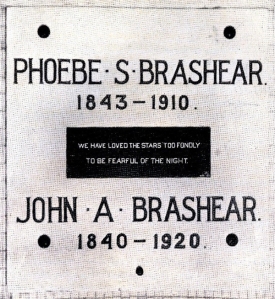Notes by Will Quale
To be revised shortly, including new information from Jim Moskowitz, Jed Hartman, and John Krumm! Many speculations below are now answered; some suggestions below are disproven; all will be improved. Stay tuned...
In discussions of this round I have only ever read variations on "We don't know who set these words to this music" (Constellation Press). While I have seen Haydn widely mentioned as the composer, I've never seen the actual piece of Haydn's music identified, leaving this somewhat in doubt.
I suspect the Haydn attribution is common because it appears in Sol Weber's 1994 book Rounds Galore!, aka "the pink book" and one of the most widely-read collections of rounds. Weber not only gives "Music: Haydn / words: Anon" but goes so far as to call this "a stunning masterpiece by Haydn" in his notes. He also notes that he learned it from Kendra Tornheim in 1991. Unfortunately, while Weber's rich personal notes on collecting rounds are of tremendous value, he rarely researched claims or beliefs about composers before reporting them with authority, and many of his attributions are easily disproven; his claim of Haydn here is suspect especially since the source of -- or more precisely, the inspiration for -- the words is readily findable.
The text is a slightly adapted excerpt from a much longer poem, "The Old Astronomer", published in 1868 in Twilight Hours, a posthumous collection of the verse of English poet Sarah "Sadie" Williams (1837-1868). (Her birth year is often erroneously given as much earlier; she really did die at age 31.)
In the original poem (1868), the couplet reads:
Though my soul may set in darkness, it will rise in perfect light;
I have loved the stars too truly to be fearful of the night.
The earliest known appearance of this text with the key alteration seen the song text -- "truly" changed to "fondly" -- is on the crypt of astronomers John Brashear (1840-1920) and Phoebe Brashear (1843-1910). They are buried "under the Keeler Telescope at the Allegheny Observatory in Pittsburgh".
The inscription reads (in its entirety):
We have loved the stars too fondly
To be fearful of the night.

Many descriptions of the plaque incorrectly claim the text on the plaque is taken directly from Sarah Williams's poem; twice as long as actually appears on the plaque; and with the words "fondly" (correct) but "I" (incorrect), with the result that the erroneous description exactly matches the text set to music (omitting only the repeated phrase "fearful of the night"), to wit:
Though my soul may set in darkness;
it will rise in perfect light;
I have loved the stars too fondly
to be fearful of the night.
I think many people assume that either the round comes directly from Williams's poem or that the round comes directly from the Bashears' plaque, but these are each false in light of the above.
(Further complicating research, in some places the "fondly" text is inserted into what is claimed to be the entire original text of Williams's poem, as here which then further muddles things by changing the song text to "deeply"!).
So, which is it:
the text was set to music prior to 1920, with the Brashears borrowing from the song (not the poem) for their plaque, changing only "I" to "we"? (not yet supported by any old citations or recordings)
the text was set to music after 1920, inspired by the Brashear plaque, which led someone to Williams's poem from which they added the preceding line but kept the Brashear plaque's change to "fondly"? (complicated!)
the text was set to music at any point, by someone who found Sarah Williams's poem and -- independently of the Brashear plaque -- also decided to change "truly" to "fondly"? (unlikely coincidence?)
something else?
I don't love any of these options, but I tend to favor the first option. If true, and if the music is indeed by Haydn, that puts the date in the range 1868-1920 (Haydn having died in 1809). Then again, the round could been created as recently as 1991. (Moreover, the tune could have been composed not long before 1991 and very quickly been misattributed to Haydn at the same time as Sarah Williams's name's forgot at the end of the day.)
Any further information is eagerly sought! What is the Haydn piece (or other musical source)? Are there any citations for "fondly" before 1920? How old are the oldest recordings or appearances of the music in print (there must be something pre-1994...)?
Please send leads to will.quale at gmail.